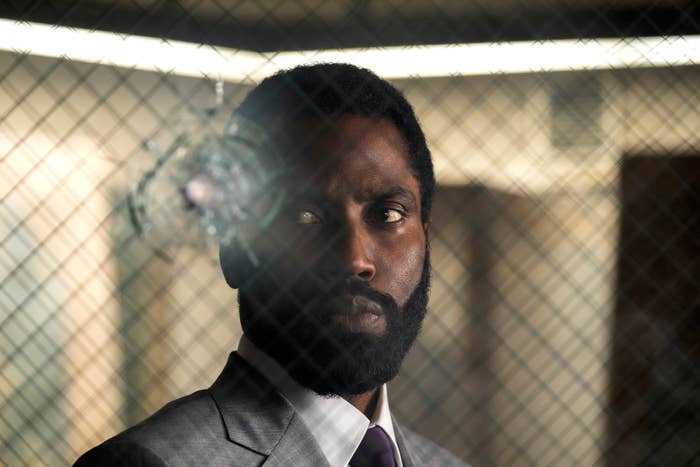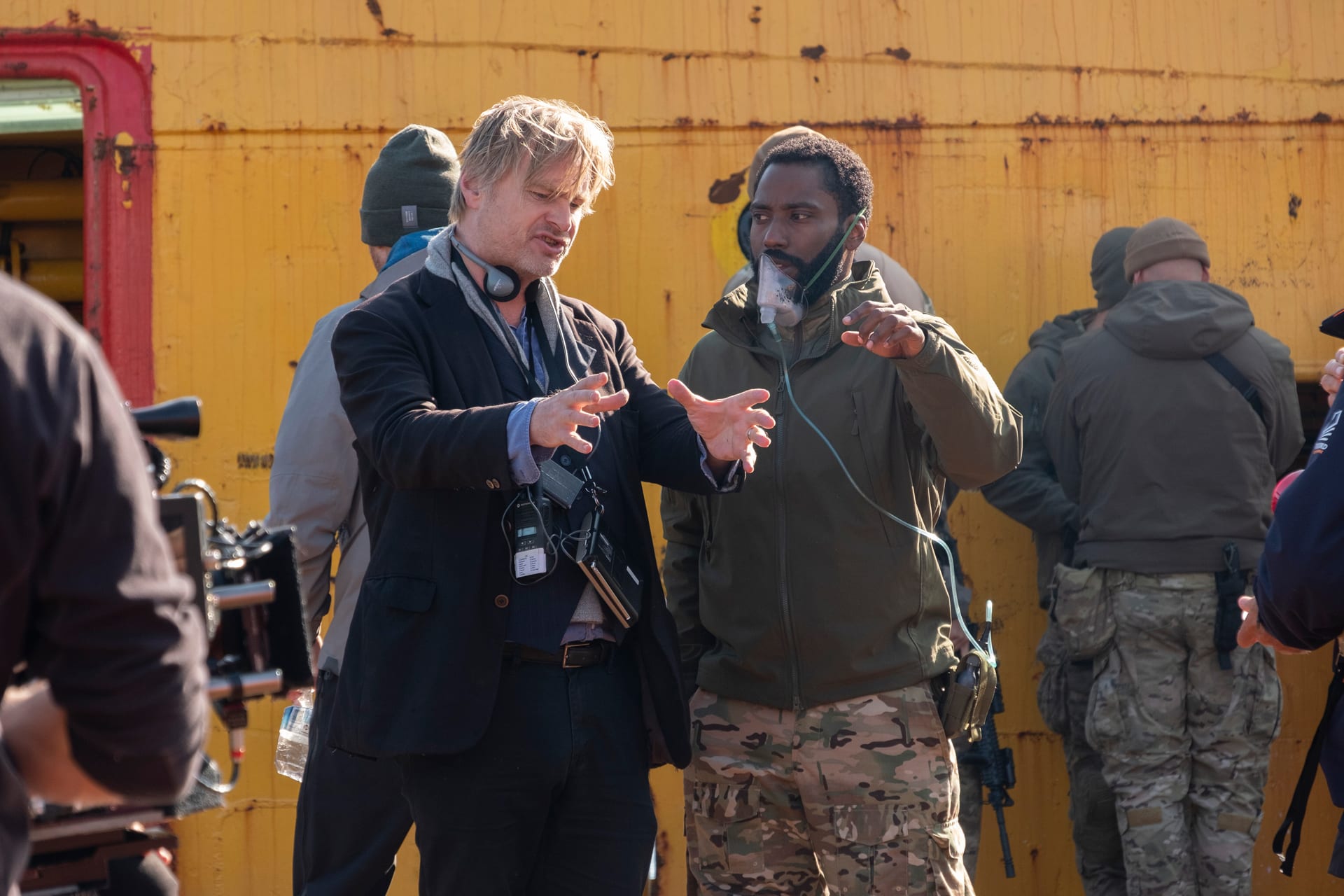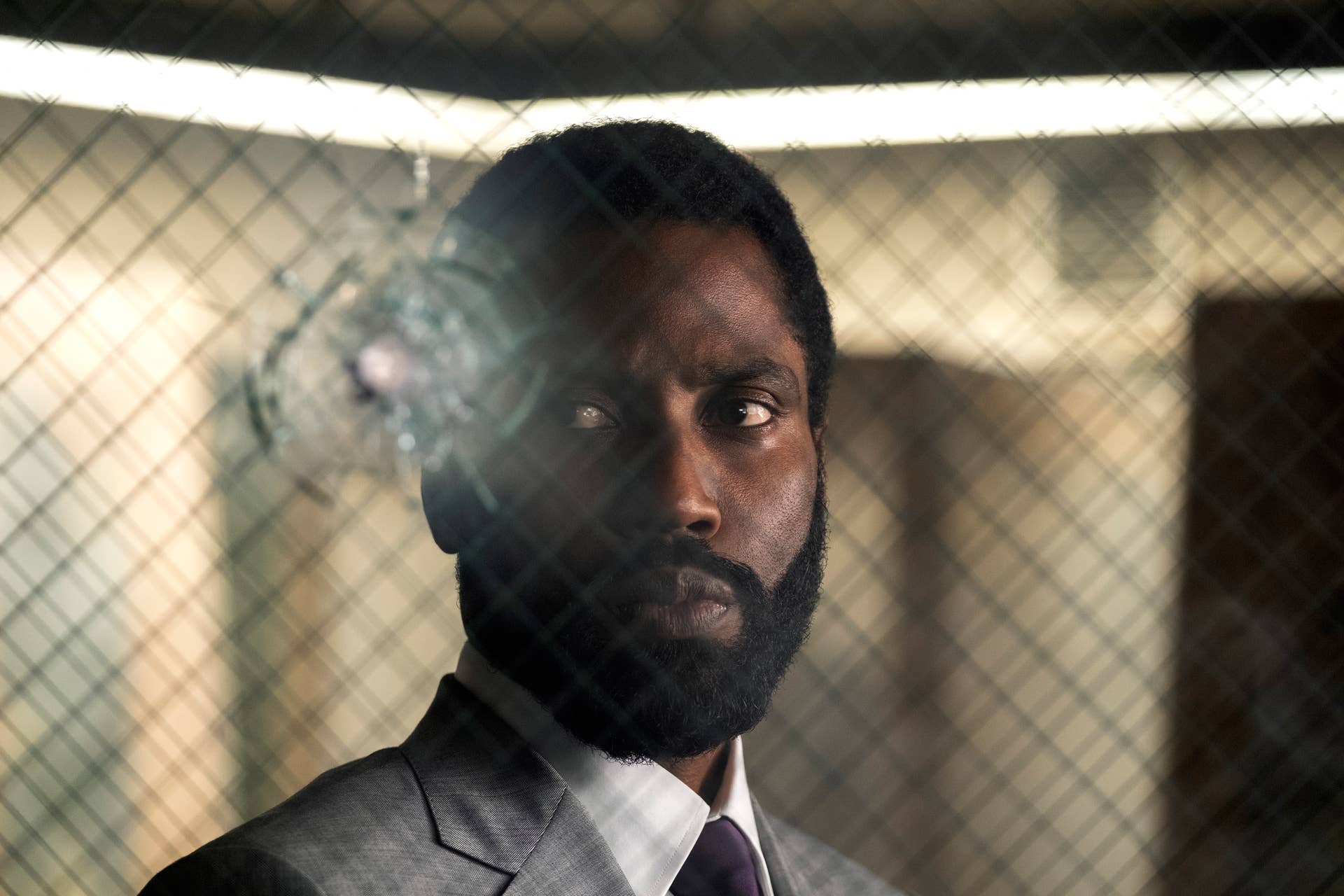
Two years ago, I proclaimed that John David Washington was just getting started. It made sense at the time; Spike Lee's BlacKkKlansmen, which Washington starred in, was a critical hit, garnering a 10-minute standing ovation at the Cannes Film Festival before being the film that finally netted the legendary Lee with an Oscar proper (for Best Adapted Screenplay). Sure, Washington already had series like Ballers under his belt, and films like Monsters and Men and The Old Man & The Gun allowed JDW to flex his acting chops. His portrayal of Ron Stallworth in BlacKkKlansman was different, though; it allowed John David Washington to be seen as a true lead actor. It's the film that Tenet director Christopher Nolan saw, leading him to take the initial meeting with JDW in the first place.
Fast forward two years later, and the world feels like such a different place. Tenet finally hit domestic theaters on Sept. 3, 2020, making it the first tent-pole release to drop in a year where COVID-19 rocked the theater business, with companies still trying to make sense of what this means for the future of cinema. Worldwide, Tenet is the third-highest-grossing film of this year, which is nothing to sneeze at, even if the $359.9 million it's taken in at the box office has been deemed "dismal" by some (especially once you factor advertising dollars into the mix)—even though Nolan himself has said he's "thrilled" by the box office numbers coming into this "new reality" we're facing. We could speculate on how much Tenet would've taken in if the coronavirus wasn't crippling the theater business in the United States, but that'd also take away from the moment JDW is currently having.
To look at John David Washington's 2020 is to study what it is to be a working actor in a time of COVID. He's dealing with promoting the Dec. 15 home release of Tenet, filming intimate movies with Euphoria star Zendaya for Euphoria creator Sam Levinson during a pandmic, as well as gearing up for whatever 2021 holds. In a year where John David Washington was primed and ready to be the star, you'd think that this entire ordeal would be wearing on him. From the time I got to spend with him during a recent Tenet junket (over Zoom, obviously), that didn't seem to be the case. We briefly chatted about what he learned from Nolan, how he dealt with such a complex (heh) tale in Tenet, and the origin of that "hot sauce" line.
When we spoke back in 2018, I remember asking you where 2018 ranks in regards to the biggest or best years in your life. Now, fast forward to 2020, and you've obviously been doing bigger and better things since we last spoke. With everything going on in 202, I gotta ask: How are you doing? How's your year been?
It's been a year of reflection and sitting with myself, sort of taking inventory of what's been going on even before I last spoke to you, and trying to find—not to sound too dramatic—the meaning of life, and making sure I'm on the right page and having the time to do that because of what's going on. Ultimately, what I found in that reflection is all positive, and I think I'm doing all right to keep going, to keep pushing.
I read that Christopher Nolan had seen you in BlacKkKlansman, and that's where the idea for you leading Tenet began. Do you remember when you first had the conversation with him about this film in particular?
I remember the first conversation I had with him, but it was not about this film. What I found in that two-and-a-half-hour exchange was just a man that loved film, a man that was really cool, funny, and "regular". I don't know why, I just didn't expect that. I thought he was going to be...I don't know, like a robot or something. It was really cool to just talk to him for two-and-a-half hours in his office about our relationship to film, what it means to me, [and] what it means to him. Tenet didn't come up at all, until I got the call saying I got the job.
You've also called Nolan a hero of yours. Why do you consider him a hero?
I call him a hero because of his films, and what they meant to me, but also how he seems to navigate in the industry. There's a certain rollout that comes along with a Christopher Nolan film. There's an excitement that's built around his films, that is orchestrated by him and his team. It seems that he's found this beautiful balance of art and commerce. It is show business. He's uncompromising when it comes to his vision, and his execution of the story he's trying to tell. It's still viable, [and] it still has an opportunity to do good business for a lot of people. That's a hero of mine. You can be about the art and about making a living.
Tenet was the first tentpole film to come out this year. Talk about rolling out a film during the time of COVID-19.
To be quite honest I was nervous. I thought, "Maybe we should wait." I didn't think it was going to come out. I didn't know. Every conversation I had with [Nolan] was just that heroic quality I spoke of before. He believes in cinema, he believes in the theater experience, and so do I. This is why I'm in. This is why I do what I do.
Just hearing his confidence, and affirmation about what the game plan is, I'm like "Hell yeah. What was I thinking? Let's do this." Obviously with the safety protocols being set to work with. It's really courageous; it's rock and roll, man. It's an artistry to me on a different level. Just believing in something so much; I just admire that, and I loved it.
It sounds like you really dove into The Protagonist. I heard that you had diaries you'd keep about his life. How extensive is the backstory you have for The Protagonist?
I'll put it like this: He loves sorbet. [Laughs] I went very, very detailed. It was little weird things like that. I just love doing that stuff. It's a lot of fun, and gives me avenues to explore, to maybe inform a scene that isn't necessarily suggested on the page. There was a situation where I got to use "hot sauce" in a Christopher Nolan movie, and I credit that to the diaries. The background research, the development of character. I made it up, but just staying in the zone of The Protagonist helps all those kinds of moments.
I'm glad to hear you say that because I popped when you said "I ordered my hot sauce an hour ago." What are some of your favorite moments in Tenet?
Definitely the hot sauce line, because Chris laughed, and I got a laugh out of him. I remember he told me—there wasn't anything written there, and he basically was like a coach asking a quarterback to make a play. "Look I'm going to need you to just make a play. You got to say something." I was like "What? All right." That happened, and I cracked him, so that was a memorable moment for me. Just the fact that I could make Christopher Nolan laugh in a take, and that he actually used it.
There are a couple of emotional beats in the film. I was just doing it for me, just working out for myself as the character, and he used it in the film. I was proud of that—not because of what I did, but the fact that it showed me that he trusted me so much that he's keeping the stuff in the film that was not discussed. It was reflective of the working relationship I think we had. He trusted me so much with this material, and that was proof positive.
In watching the making-of featurette on Tenet, I was fascinated by the lengths the cast and crew had to take to understand where a certain character was in the timeline of the story at any particular part of the film. Was there a moment where you said, "I got it. I understand what this film is"?
It's interesting. I love that question because of those moments of realization, or understanding, comprehension of the script, and concept. It was seasonal; it would come, and then it would go.
When I first read the script, which took about four-and-a-half hours or so, I really thought I connected to the characters. The world we were in? I had no idea. I'm not sure what he's talking about, but the characters I really understood, I thought. Then, conceptually, I thought once I started training for those two-and-a-half months, I started understanding the rules of inversion a little better, just because of the repetition of working these moves out in the inverted world, and what the rules dictate.
That being said, I had this confidence, sometimes. It was week to week. Some weeks I was like, "Yeah I got it, I totally know what we're doing." Other weeks, I was asking questions as if I was a second-grader. Just the most basic of questions, and always asking the questions, and [Nolan] was patient with me, so I appreciate that.
It's fascinating to watch you guys not only learning the fights forwards, but then having to learn them backwards. It was that moment during that first fight scene. I had never seen anything like that before. How hard was it to wrap your head around just the idea of working those movements out?
Yeah, I've never seen it either, so it took some time. I needed those months to get the movements and understand the concept of the film, and how it manifests itself through this physical movement. I was just so proud of the process, too, especially the result of it. Knowing that we were a part of the history like you know George Cottle, Andrew Jackson, and company, these guys who've been doing this for decades, for years. They were learning, too, and developing these moves that had never been done before—in cinema, or anywhere—so that was really cool, to explore fertile ground and to be able to grow that way. That was really exciting to know that.
It was extremely difficult, though. I come from a football background and doing some mixed martial arts in the past. I'm used to advancing forward, defending myself forward, so all that is thrown out the window when it comes to rules of inversion. The trick, to me, was not being so precise, letting it be a little sloppy, letting it be, because the character is sort of discovering this way of movement as the movie goes, so it can't be too exacting. That was interesting, and difficult as well.

What were some of the biggest things you've learned from working with Nolan on Tenet?
No matter what the budget is, how big it is, what's on the line, it's all about storytelling. There were some of the biggest, most elaborate set pieces ever in all these beautiful locations. Beautiful Mediterranean waters and the Amalfi Coast. Yet there were also these moments that felt like an indie film. That was like literally no noise. It was just us discussing these lines, and as an actor I [realized] that it's still about the story at the end of day. The bells and whistles [make it] important, [and] make it an event. Christopher Nolan is an event in himself, but it's still about the story.
He seems to care about the collaborative aspect of filmmaking, which is what I learned. No matter where you are in his career, he has nothing to prove. He's done it all, and he just loves it. He's doing it because he loves it, and he's doing it because he believes in, to me in my experience, the collaborative aspect of what we do.
Do you think he loves it enough to make a Tenet 2?
I think he loves it enough. I don't know if he'll execute a Tenet 2, because he's an artist. He does what he wants to do. That's why we show up every time.
Tenet hits 4K, Blu-ray, DVD, and digital release on Dec. 15, 2020.



